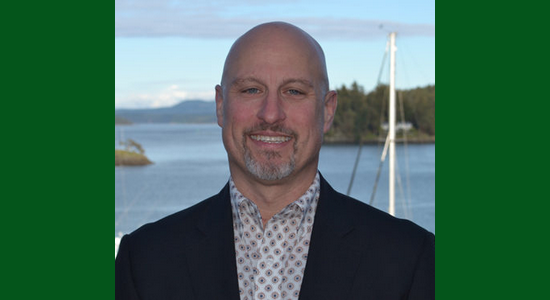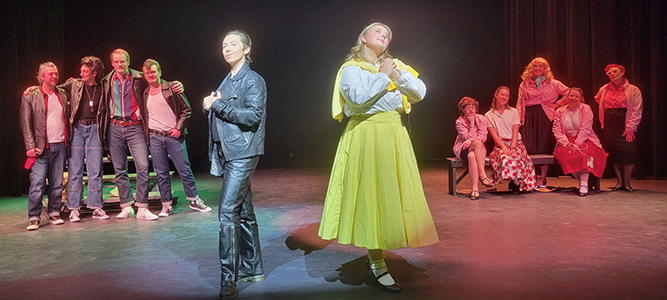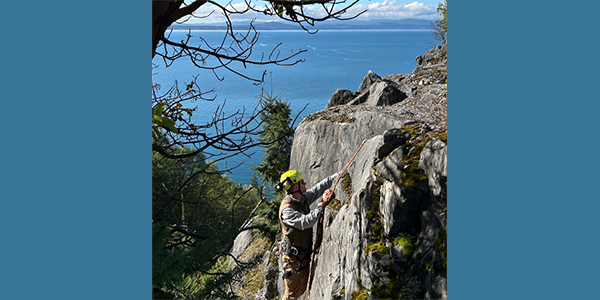||| ORCASIONAL MUSINGS BY STEVE HENIGSON |||
My stepfather was not a nice man. It wasn’t from a lack of wanting to be, but rather because the demons he carried around with him got in the way. My mother married him “on the rebound” and with her eyes closed, and, for his part, he had always been somewhat monastic and wasn’t at all wise to the ways of women, so the whole relationship ended up a disaster.
He had been born long enough ago to have remembered the Spanish-American War, and he grew up to be a peace-loving man who strongly believed that armed conflict was a bad solution to any problem. Because he believed in healing, rather than harming, he became a physician and a surgeon.
But when the US entered World War One, he believed that it was his duty, as a first-generation US citizen, to serve his country as best he could, so as soon as he had graduated from medical school and his internship, he enlisted. He was commissioned a Lieutenant in the Army’s Medical Corps, and ended up in charge of a front-line aid station in northern France, doing triage and emergency medicine, and keeping wounded soldiers alive until they could be taken to a behind-the-lines field hospital.
When the Second World War began, feeling the same sense of duty, he reënlisted and was commissioned a Captain in the Army Medical Corps. During his WW2 service, he worked stateside for a while, was chief surgeon aboard a hospital ship in the Mediterranean, and then was also in charge of surgery in the one field hospital on Attu Island, during the Aleutian campaign. At the end of the war, he mustered out a Major.
Once, when I was still very young, and while he and I were enjoying some amount of a friendly relationship, I asked him if he had ever been forced to “fire a shot in anger.”
“Yes,” he said. “Once I had to pick up a Thompson sub-machine gun, and help defend my surgical section.”
He was very specific—almost obsessive—about the fact that his weapon was a Thompson. But that’s all that he would say on the subject. I could get nothing more out of him. I was already enough of a “gun guy” that I found his answer very confusing. His front-line service was in WW1, but there were no Thompsons in WW1. And his WW2 service, when there indeed were Thompsons, was all far behind the front lines.
Years later, I figured out that he suffered from PTSD, or what we used to call “battle fatigue.” My mother was no help to him at all. Their relationship was mutually frustrating and unhappy, and, when I was about 11, he began to take out his frustrations upon me as well. For a while, this included his sexual frustrations, too.
At one point when I was 15, things got so bad that, during a screaming family fight, he became physically abusive for just one time too many, and I grabbed a WW1 Springfield bayonet from off of my bedroom wall, and I tried to kill him with it. My mother stopped me, just barely in time, after which I left home forever, and never came back. (I was later told by someone who knew about these things that, had I actually succeeded in killing him at that moment, I would’ve gotten off scot-free.)
About 10 years ago, I read an exhaustive study of the US Army’s WW2 Aleutian campaign, and the mystery of my stepfather’s heroism, and his “battle fatigue,” was finally cleared up. One of the last acts by the Japanese on Attu was a massed-infantry suicide attack against the one US field hospital on the island. That was my stepfather’s hospital. Everybody—guards, nurses, doctors, patients—had to grab whatever weapon came to hand, and fight off the attack or be killed. Medical personnel had to kill people, and, of course, that included my anti-war stepfather, who indeed did kill attacking Japanese soldiers, for which he used a Thompson sub-machine gun.
So finally his heroism, and his abusiveness, were completely explained. He had continuous trouble living with the fact that he, a pacifist medical doctor, had killed people. The result was continual anger and frustration, exacerbated by his disappointing relationship with my sexually repressed and emotionally distant mother.
Although it probably wouldn’t’ve changed our relationship, it would’ve been nice to have had access to the whole, real story much sooner. I feel sorry for him now, because I understand him now, and I guess that I can forgive him now.
My mother never tried to understand the strain under which he lived, and I, in the throes of my ‘teenagerhood, wasn’t helpful to him either. I now deeply regret that, but it’s too late: he died quite a long time ago.
**If you are reading theOrcasonian for free, thank your fellow islanders. If you would like to support theOrcasonian CLICK HERE to set your modestly-priced, voluntary subscription. Otherwise, no worries; we’re happy to share with you.**









As Edwin Starr once sang, “War! What’s it good for?/Absolutely nothing
Steve, your bravery in sharing your story is welcomed and will serve to help others heal. Thank you for opening up and may it be healing for you as well. PTSD is an unseen chronic illness that should be addressed as it affects not only the person who experiences the trauma, but their loved ones as well.